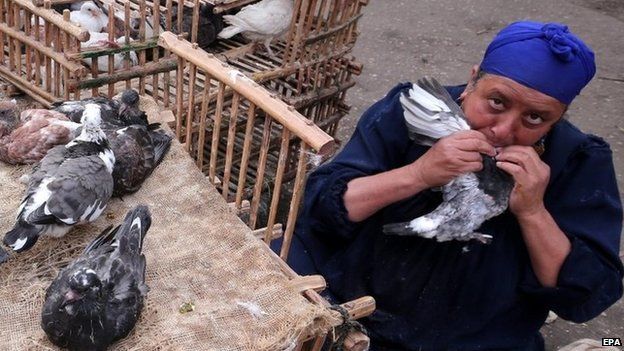Bird flu: Three Egyptians die of H5N1 virus
- Published

Three people have died in the past week after contracting the H5N1 avian influenza virus in Egypt, the country's health ministry has said.
Egypt has now confirmed 11 cases of the virus in people this year, including the six who have died.
The most recent victims were a 40-year-old man and a 29-year-old woman from the central province of Minya, and a 25-year-old woman in nearby Beni Suef.
A two-year-old girl who had the virus was meanwhile said to have recovered.
H5N1 is a type of influenza virus that causes a highly infectious, severe respiratory disease in birds.
Human cases of H5N1 avian influenza occur occasionally, but it is difficult to transmit the infection from person to person. When people do become infected, the mortality rate is about 60%.
Between 2003 and October 2014 there were 668 confirmed human cases of H5N1 infection in 15 countries, leading to 393 deaths, according to the World Health Organization (WHO).
Egypt has reported 177 of the confirmed cases and 63 of the deaths.
The health ministry said the first death resulting from H5N1 in the country this year happened in June.
The al-Ahram newspaper reported that emergency procedures were put in place at hospitals in November after two deaths in the same week - a 30-year-old woman in Minya and a 19-year-old woman in Assiut.
- Published17 November 2014
- Published17 November 2014
- Published18 November 2014